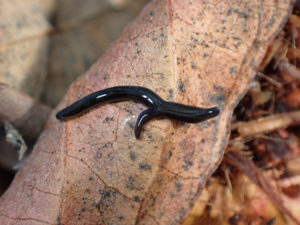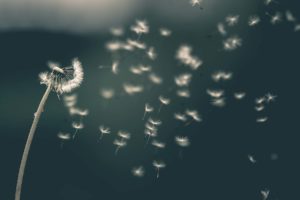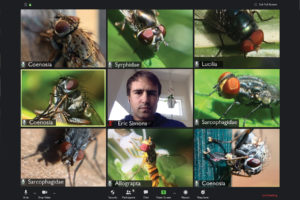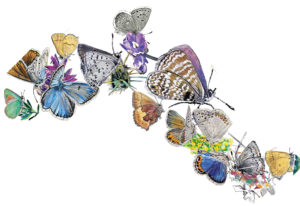General Information Sources and Websites
Bio-Integral Resource Center
(510)524-2567
Extensive information resources for least-toxic pest management.
California Integrated Waste Management Board
www.ciwmb.ca.gov/organics/gardening
Information and resources for organic materials management and home gardening, including grasscycling, home composting, and worm composting.
Our Water—Our World
Integrated Pest Management Fact Sheets, plus lists of less toxic products and participating stores.
Soil Foodweb
www.soilfoodweb.com/03_about_us/approach.html
Information on the biological components of soil and compost and soil improvement through the use of compost tea.
USDA Natural Resources Conservation Service (NRCS)
Soil biology information resources:
http://soils.usda.gov/sqi/concepts/soil_biology/biology.html
Soil facts:
http://soils.usda.gov/education/facts
County soil surveys:
http://websoilsurvey.nrcs.usda.gov/app/” target=”_blank”>http://websoilsurvey.nrcs.usda.gov/app/
University of California Cooperative Extension Master Gardeners Online
University of California Extension program website has links to Master Gardener programs in most counties.
County Waste Management Programs:
Bay-Friendly Landscaping and Gardening (Alameda County)
(510)444-SOIL composting information hotline
(877)STOPWASTE recycling hotline
Public program of the Alameda County Waste Management Authority for residents and landscape professionals. Offers workshops, booklets, and more on building soil health and growing sustainable gardens. Offers discount compost bins to Alameda County residents.
Contra Costa County Waste Reduction and Recycling
(800)750-4096
Home composting, worm composting, grasscycling.
Marin County Stormwater Pollution Prevention Program
(415)499-3202
Home composting, worm composting, less-toxic pest management.
San Mateo County RecycleWorks
http://www.recycleworks.org/compost
(650)599-1498
Home composting, worm composting, sustainable gardening, and grasscycling.
Santa Clara County Home Composting Education Program
(408)918-4640
Home composting and worm composting.
Sonoma County Waste Management Agency
www.recyclenow.org/r_composting.html
(707)565-3375
Home composting, worm composting, grasscycling, and less-toxic pest management.
Books
Bay-Friendly Gardening: From Your Backyard to the Bay
by Alameda County Waste Management Authority and Recycling Board, 2004
Gardening tips, a design survey, profiles of East Bay gardens, and much more.
Printed guide is available free to Alameda County residents and to out-of-county residents for $10.61 ($7 plus tax and shipping) at (510)444-SOIL. Also available as a free download at www.stopwaste.org/.
The Best of Fine Gardening: Healthy Soil
by the editors of Fine Gardening magazine, Taunton Press, 1995
Basics of soil composition, testing, drainage, and improvement.
California Master Gardener Handbook
UC Agriculture and Natural Resources Division, 2002
A comprehensive, science-based guide to all aspects of horticulture. Order online at http://anrcatalog.ucdavis.edu.
Dirt: The Ecstatic Skin of the Earth
by William Bryant Logan, Riverhead Books, 1995
Brings to life the many aspects of soil and the mystery of the world beneath our feet.
The Earth Moved: On the Remarkable Achievements of Earthworms
by Amy Stewart, Algonquin Books of Chapel Hill, 2004
Enjoyable and informative book about one of the most important inhabitants of the soil.
The Formation of Vegetable Mould Through the Action of Worms with Observations on their Habits by Charles Darwin
Various publishers, currently in print; also available in a free online edition at http://pages.britishlibrary.net/charles.darwin/texts/vegetable_mould/mould.html
Darwin’s last book, initially published in 1881, explores the actions and importance of earthworms.
Let It Rot: The Gardener’s Guide to Composting
by Stu Campbell, Storey Publishing, 1998
Classic guide to home composting.
Out of the Earth: Civilization and the Life of the Soil
by Daniel Hillel, UC Press, 1991
Documents the uses and abuses of soil through time and around the world. Also describes systems for managing soil and water.
The Rodale Book of Composting: Easy Methods for Every Gardener
edited by Grace Gershuny and Deborah L. Martin, Rodale Books, 1992
Comprehensive and detailed “textbook” on composting.
Soil Biology Primer
Soil and Water Conservation Society, in cooperation with USDA NRCS, 2000
Great introduction to soil organisms and their importance. Copies are available from the society at www.swcs.org or (800)THE-SOIL, ext. 24.
The Soul of Soil: A Guide to Ecological Soil Management
by Grace Gershuny and Joseph Smillie, agAccess, 1996
Good introductory book for learning how to think about and manage garden soil in the most sustainable way.
Start with the Soil
by Grace Gershuny, Rodale Press, 1993
Good interpretation of basic information about soil. Part of the organic gardening canon.
Worms Eat My Garbage: How to Set Up and Maintain a Worm Composting System
by Mary Appelhof, Flower Press, 1997
The definitive guide to worm composting.
Other Publications
Do the Rot Thing: The Simple Art of Home Composting (video)Demonstrates the basic steps and simple tips that make composting at home fun and easy.
Available from the Alameda County Recycling Hotline at 877-STOPWASTE or www.stopwaste.org.
King County (Washington) Solid Waste Division
www.metrokc.gov/dnrp/swd/composting/documents.asp
Several informative online publications on home composting, worm composting, mulch, and soil health.
Natural Resources Conservation Service
Soil Quality Information
Downloadable series of one-page fliers introducing soil quality concepts, some for agricultural professionals, some for the layperson.
University of California Department of Agriculture and Natural Resources Publications
Some publications are downloadable for free; some are available for purchase online or by phone. (Check the lists of publications under Gardens and Lawns/Lawn and Landscape.)
Classes and Workshops
Community Colleges
Local community colleges may offer classes on soil fertility and composting.
Diablo Valley College Horticulture Department: www.dvc.edu/horticulture
Merritt College Landscape Horticulture Department: www.merrittlandhort.com
Listing of all California community colleges: www.cccco.edu/find/regional.htm
County Waste Management Programs—see listings above under General Information Sources and Websites
All offer classes on composting, etc.
City of Palo Alto
www.cityofpaloalto.org/recycle/homecompost.html
(650)496-5910
Home composting workshops and other classes on organic and sustainable gardening.
Common Ground Organic Garden Supply and Education Center (Palo Alto)
www.commongroundinpaloalto.org
(650)493-6072
Workshops on backyard composting, worm composting, and organic gardening.
Eco-Calendar (sponsored by the Berkeley Ecology Center)
www.ecologycenter.org/calendar
Listings include composting and soil workshops around the Bay Area.
Ecology Center (Berkeley)
www.ecologycenter.org/erc/index.html
(510)548-2220
Classes on composting, worm composting, and other aspects of sustainable gardening.
Garden for the Environment (San Francisco)
www.gardenfortheenvironment.org
Workshops include composting and soil fertility.
The Gardens at Heather Farm (Walnut Creek)
www.gardenshf.org/AdultClass.html
(925)947-1678
Classes on soil and composting for home gardeners and EBMUD’s new water conservation demonstration garden.
Occidental Arts and Ecology Center (Occidental)
www.oaec.org/OAEC_Courses.html
(707)874-1557 ext. 201
Classes on various aspects of permaculture, including composting, soil fertility, mulch, and erosion control.
Planet Drum Foundation Green City Calendar
www.planetdrum.org/green_city_calendar1.htm
Searchable online calendar of classes, workshops, and events throughout the Bay Area, including some on soil and home composting.
Advice and Libraries
Helen Crocker Russell Library of Horticulture
Strybing Arboretum
Ninth Ave. at Lincoln Way
Golden Gate Park, San Francisco
(415)661-1316 ext. 303
University of California Cooperative Extension Master Gardener Programs
Compost Demonstrations
Home Compost Education Project – Sonoma County
Environmental Discovery Center of Sonoma County
Spring Lake Park, Santa Rosa
(707)539-2865
Composting information available for the public, hands on activities for children, demonstration worm-boxes, etc.
Bay-Friendly and Compost Demonstration Gardens
666 Bellevue Ave. (in Lakeside Park at Lake Merritt), Oakland; and
3589 Pacific Ave., Livermore
Displays of composting, mulch, and materials reuse and recycling.
Soil Testing
Home soil test kits
Usually $20 or less.
For measuring nitrogen, phosphorus, potassium content and soil pH.
Purchase at full-service nurseries or from online suppliers.
Make sure the kit you purchase is fresh and has not been exposed to sunlight or moisture.
Professional soil testing (for big projects)
Usually $150-300.
Companies are listed in the yellow pages of the phone book or online.
Measurements may include lead, mercury, organic matter, and nutrient content of soil, as well as soil texture and pH.

.jpg)



